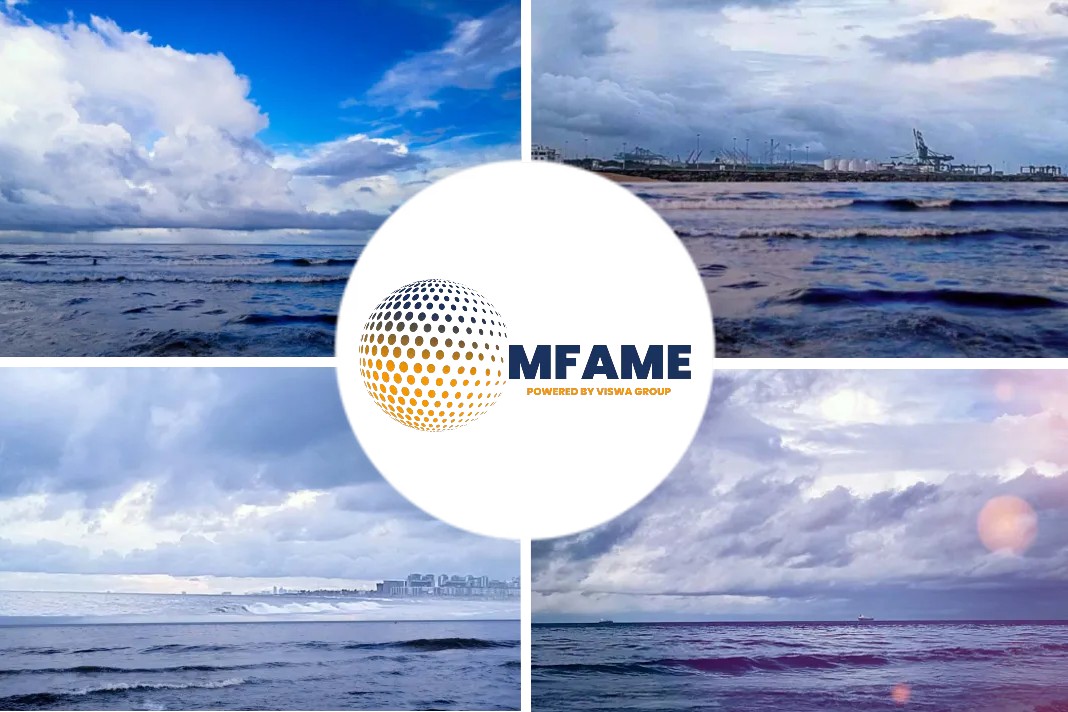- Operators that have invested in open loop scrubbers have announced that they are restricting or completely banning ships.
- They have banned ships that use fuel cleaning systems that pump waste water into the sea.
- Open loop scrubbers use seawater to remove pollutants from exhaust gases released by ships.
- This water ends up into the sea as liquid emissions raising concerns about sea water quality.
According to an article published in Safety4sea, the path towards 2020 sulphur cap remains challenging.
Challenges faced by operators
Especially for those operators that have invested in open loop scrubbers, after many ports have announced that they are restricting or completely banning ships from using fuel cleaning systems that pump waste water into the sea.
In essence, open loop scrubbers use seawater to remove pollutants from exhaust gases released by ships, which are then end up into the sea as liquid emissions, raising concerns about the concurrent effect of this technology on sea water quality. Thus, ships with open loop scrubbers docking or sailing through several ports may need to store waste in tanks until it could be discharged elsewhere or avoid the ports, since many are the coastal states and ports that have implemented local regulations with effect to those type of scrubbers.
Asia
China bans discharge of washwater from scrubbers in the county’s inland ECAs, port water areas of coastal domestic ECAs and Bohai Bay waters, from 1 January 2019. More specifically, the guidelines prohibit the incineration of the water washing residues from any type of exhaust gas scrubber. Ships must keep accurate records of the stowage and disposal of the washing washings.
If a vessel cannot store the washing water it is required to switch to low sulphur fuel before entering the above areas. The guidelines also state that under certain circumstances a vessel may apply for an exemption if it uses fuel that does not meet the MSA’s requirements.
In the same wavelength, in Singapore discharge will be prohibited in port waters from 1 January 2020.
In addition, if a ship intends to use scrubbers in Hong Kong waters, application must be made for an exemption from using compliant fuel. The application must be made at least 14 days before a ship’s first visit to Hong Kong. As for India, scrubber washwater discharges are allowed if MEPC.259(68) criteria are met. However, local regulations must also be followed.
What is more, vessels fitted with scrubbers that call at Malaysian ports must change over to compliant fuel or operate in closed-loop mode before entering Malaysian waters (12 nautical miles from land).
UAE
In Abu Dhabi scrubber washwater can be discharged in port waters if free form pollutants, while scrubber sludge should be discharged from the vessel to an Abu Dhabi Ports Company licensed waste disposal contractor. Regarding Fujairah, the use of open loop scrubbers will be banned in port waters.
Europe
In Europe, Belgium and Latvia ban the discharge of scrubber washwater in ports and inland waters, with Belgian federal law stating that discharge is only allowed in coastal and open seawaters when at least 3nm off coast. However, discharges must not imperil EU Water Framework Directive objectives., and Flemish regional law also confirmed that discharge is not allowed in ports or inland waters.
In Germany, authorities does not allow discharge in inland waterways and the Rhine. Lithuania also seems to be against the discharge in port waters, but it is studying the impact of scrubber washwater.
Additionally, Ireland bans washwater discharge in Dublin, Waterford, and Cork. As far as Norway is concerned, open loop scrubbers are prohibited in the Norwegian fjords.
Americas
In the US, Connecticut prohibits discharge of scrubber washwater, with California as well banning the use of abatement technologies altogether. Namely, the Port of Long Beach does not allow ships to discharge washwater from scrubbers in port waters, but it may permit it if the vessel has an experimental or temporary research permit. On the other hand, Hawaii allows discharge, subject to certain requirements.
Moreover, recently Panama Canal announced that ships are not required to change to light fuel, if equipped with a type approved closed-loop scrubber, kept in operation during the entire transit. The residues from the scrubber washwater are to be collected on board. Discharging these residues into the water bodies under the responsibility of the Panama Canal or incinerating them on board is not allowed.
Finally, Bermuda bans the use of open loop scrubbers, while if a vessel has to use closed loop scrubber, permission is needed from the authorities.
Oceania
Australia has not yet banned the discharge of washwater from open loop scrubbers, with authorities currently assessing the impact of scrubber discharges.
Africa
South Africa accepts all types of approved scrubbers, under the requirement that they comply with IMO discharge criteria. However, there are reports claiming that the country may reconsider its position on whether to allow open loop scrubbers.
Did you subscribe to our daily newsletter?
It’s Free! Click here to Subscribe!
Source: Safety4Sea


























